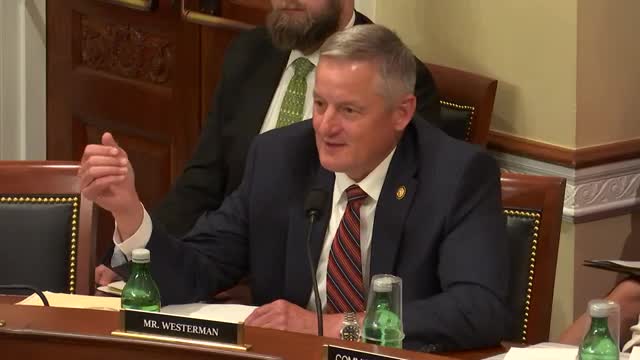Idaho Representative Fulcher Critiques Roadless Rule Amid Wildfire Access Challenges
May 16, 2025 | Natural Resources: House Committee, Standing Committees - House & Senate, Congressional Hearings Compilation
This article was created by AI summarizing key points discussed. AI makes mistakes, so for full details and context, please refer to the video of the full meeting. Please report any errors so we can fix them. Report an error »

Concerns over the impact of the roadless rule on forest management took center stage during the recent Oversight and Investigations Subcommittee meeting of the U.S. House Committee on Natural Resources. Lawmakers highlighted the challenges posed by restrictions on road construction in national forests, particularly in the Tongass National Forest, which has been significantly affected by these regulations.
Representative Begich pointed out that the roadless rule, initially aimed at protecting certain areas, has inadvertently hindered effective forest management across the country. He noted, "We actually spent money to build the road, then we spent money to tear the road out," emphasizing the inefficiency of current policies. The discussion underscored the need for better access to manage wildfires, especially in light of recent devastating fires that have burned through thousands of acres.
Mr. Muncy, a witness at the hearing, echoed these sentiments, stating that the inability to reestablish roads due to environmental concerns complicates fire management efforts. He referenced the aftermath of a fire that consumed 50,000 acres, illustrating how old roadways could have served as critical access points for firefighting efforts. "These roads can be used as control points," he explained, advocating for a shift in mindset regarding wildfire management.
The conversation also touched on the broader implications of road access for maintaining healthy forests. Lawmakers expressed a desire to revisit policies that could facilitate better forest management practices, including the introduction of controlled burns, similar to successful strategies employed in Flagstaff.
As the meeting concluded, the urgency for reevaluating the roadless rule and its impact on forest management was clear. Lawmakers are expected to continue discussions on how to balance environmental protections with the need for effective wildfire management and forest health.
Representative Begich pointed out that the roadless rule, initially aimed at protecting certain areas, has inadvertently hindered effective forest management across the country. He noted, "We actually spent money to build the road, then we spent money to tear the road out," emphasizing the inefficiency of current policies. The discussion underscored the need for better access to manage wildfires, especially in light of recent devastating fires that have burned through thousands of acres.
Mr. Muncy, a witness at the hearing, echoed these sentiments, stating that the inability to reestablish roads due to environmental concerns complicates fire management efforts. He referenced the aftermath of a fire that consumed 50,000 acres, illustrating how old roadways could have served as critical access points for firefighting efforts. "These roads can be used as control points," he explained, advocating for a shift in mindset regarding wildfire management.
The conversation also touched on the broader implications of road access for maintaining healthy forests. Lawmakers expressed a desire to revisit policies that could facilitate better forest management practices, including the introduction of controlled burns, similar to successful strategies employed in Flagstaff.
As the meeting concluded, the urgency for reevaluating the roadless rule and its impact on forest management was clear. Lawmakers are expected to continue discussions on how to balance environmental protections with the need for effective wildfire management and forest health.
View full meeting
This article is based on a recent meeting—watch the full video and explore the complete transcript for deeper insights into the discussion.
View full meeting